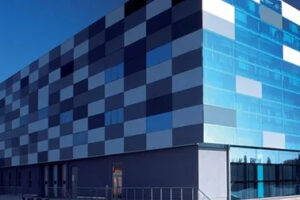The Saudi Arabia diesel generator market reached an estimated value of USD 363.97 million in 2024. The market is projected to grow steadily at a CAGR of 4.60% during the forecast period of 2025–2034, reaching around USD 570.67 million by 2034.
Saudi Arabia’s diesel generator market is being propelled by growing industrialization, rapid infrastructure development, and the expansion of the construction, oil and gas, and commercial sectors. Diesel generators remain essential in the Kingdom for providing reliable and uninterrupted power supply, particularly in areas not covered by the national grid or during power outages. The government’s initiatives to develop smart cities, large-scale industrial projects, and tourism infrastructure, such as NEOM and the Red Sea Project, have further boosted the demand for diesel generators across multiple sectors.
As the country continues to diversify its economy under Vision 2030, the demand for consistent and efficient backup power solutions will continue to grow, sustaining the diesel generator market’s expansion over the next decade.
Market Overview
Diesel generators (DGs) convert diesel fuel into electrical energy through an internal combustion process. They are widely used as standby or primary power sources across industries, commercial spaces, hospitals, data centers, and remote sites. In Saudi Arabia, where high temperatures and challenging operating conditions are common, diesel generators are preferred for their robustness, fuel efficiency, and reliability.
The ongoing economic diversification, coupled with major government-led infrastructure and industrial development projects, has significantly increased the demand for reliable power sources. Despite growing investments in renewable energy, diesel generators remain indispensable, especially in sectors where uninterrupted power is critical. Furthermore, hybrid solutions that combine diesel generators with solar or battery systems are gaining popularity as they offer both efficiency and sustainability.
Key Drivers of the Saudi Arabia Diesel Generator Market
1. Growing Industrialization and Construction Activities
Saudi Arabia’s industrial and construction sectors are expanding rapidly, driven by government initiatives to reduce dependence on oil exports and diversify into manufacturing, logistics, and real estate. Large-scale infrastructure projects such as NEOM, The Line, and Qiddiya Entertainment City require continuous power for operations, leading to strong demand for diesel generators during both construction and operational phases.
2. Demand for Reliable Backup Power
Uninterrupted power supply is crucial for sectors such as healthcare, data centers, and telecommunications. Diesel generators serve as a reliable backup solution to prevent disruptions in operations due to power outages or grid instability. With the increasing digitalization of services and rising reliance on cloud computing, the need for dependable backup power sources is growing rapidly.
3. Expansion of Oil and Gas Sector
Saudi Arabia is one of the world’s leading oil producers, and the energy sector continues to dominate its economy. Diesel generators are essential in upstream and downstream operations for powering rigs, drilling equipment, refineries, and remote facilities where grid connectivity is limited. The continued investment in oil and gas exploration and production ensures sustained demand for diesel generators.
4. Infrastructure Development and Urbanization
The Kingdom’s Vision 2030 plan includes the development of new urban centers, smart cities, transportation networks, and tourism hubs. These initiatives require temporary and permanent power generation systems. Diesel generators play a vital role in supporting these projects, particularly in remote or newly developed areas with limited grid infrastructure.
5. Growth in Commercial and Hospitality Sectors
As Saudi Arabia emerges as a key global business and tourism destination, the construction of hotels, shopping malls, hospitals, and entertainment centers is increasing. Diesel generators provide backup power to ensure operational continuity in these commercial spaces, thereby driving market growth.
Market Challenges
1. Shift Toward Renewable and Sustainable Energy
Saudi Arabia has been actively promoting renewable energy projects, especially solar and wind, as part of its clean energy goals. While diesel generators continue to play a vital role, increasing emphasis on sustainability and reducing carbon emissions may gradually restrain demand for traditional diesel-powered units in the long term.
2. Fluctuating Diesel Prices
The volatility of global oil and fuel prices directly affects the operational costs of diesel generators. High fuel costs can make diesel power generation less economical, encouraging industries to explore hybrid or alternative power systems.
3. Environmental Concerns and Emission Regulations
Diesel generators contribute to greenhouse gas emissions and air pollution. With Saudi Arabia adopting stricter environmental policies and emission standards, manufacturers are under pressure to produce cleaner and more fuel-efficient models. Compliance with these standards may increase production costs for manufacturers and procurement costs for consumers.
4. Competition from Alternative Power Sources
Technological advancements in renewable energy and battery storage solutions pose a long-term challenge. Solar-diesel hybrid systems are gaining traction, but they may reduce dependence on standalone diesel generators in certain applications.
Market Trends
1. Hybrid Power Systems
A notable trend in the Saudi Arabian diesel generator market is the integration of diesel generators with renewable energy sources, such as solar power, and energy storage systems. Hybrid configurations improve fuel efficiency, reduce emissions, and ensure a stable power supply. This trend aligns with Saudi Arabia’s sustainability goals under Vision 2030.
2. Technological Advancements and Digital Monitoring
Manufacturers are incorporating Internet of Things (IoT) and digital technologies into diesel generators for real-time monitoring, predictive maintenance, and performance optimization. Smart generators equipped with remote monitoring systems allow operators to track fuel consumption, performance metrics, and maintenance schedules, enhancing operational efficiency.
3. Growing Popularity of Rental Services
The diesel generator rental market is expanding as construction companies, event organizers, and industrial clients prefer short-term rental solutions instead of purchasing expensive equipment. This flexibility enables cost savings while ensuring uninterrupted operations during temporary power requirements.
4. Demand for Low-Noise and Fuel-Efficient Models
As urban areas expand, there is rising demand for low-noise and eco-friendly diesel generators suitable for residential and commercial applications. Manufacturers are introducing compact, silent, and energy-efficient models to meet regulatory and customer requirements.
Market Segmentation
By Power Rating
- Up to 75 kVA
- 75–375 kVA
- 375–750 kVA
- Above 750 kVA
Generators in the 75–375 kVA range hold a significant market share as they are widely used in construction, commercial establishments, and small industrial facilities. The above 750 kVA category is expected to witness steady growth, primarily due to large-scale industrial and infrastructure projects.
By End Use
- Residential
- Commercial
- Industrial
- Oil and Gas
- Construction
- Others
The industrial and oil and gas sectors dominate the market due to their extensive energy requirements and reliance on continuous power. The construction segment is also growing rapidly, supported by ongoing mega-projects across the Kingdom.
By Application
- Standby Power
- Prime Power
- Peak Shaving
The standby power segment accounts for the largest share, as diesel generators are primarily used for backup during grid failures. However, prime power applications are expanding in remote locations where grid connectivity is limited.
Regional Insights
The demand for diesel generators varies across Saudi Arabia, depending on industrial activity, infrastructure development, and population density.
Central Region (Riyadh and Surroundings)
Riyadh, the capital city, serves as the commercial and administrative hub, with numerous corporate offices, hospitals, and educational institutions. The rising number of commercial buildings and infrastructure projects fuels strong demand for standby power solutions in this region.
Western Region (Makkah, Jeddah, Madinah)
This region is witnessing massive infrastructure investments, including airports, hotels, and transportation networks, to support religious tourism. The expansion of the hospitality sector, combined with power-intensive infrastructure projects, drives significant diesel generator sales.
Eastern Region (Dammam, Al Khobar, Dhahran)
Being the center of Saudi Arabia’s oil and gas industry, the Eastern Province shows consistent demand for high-capacity diesel generators used in refineries, petrochemical plants, and offshore operations.
Northern and Southern Regions
These regions are experiencing growing demand due to infrastructure expansion and rural electrification programs. Diesel generators provide reliable power for remote construction sites and industrial operations.
Competitive Landscape
The Saudi Arabia diesel generator market is moderately consolidated, with several international and regional players competing through technology innovation, service quality, and pricing strategies.
Key Market Players Include:
- Caterpillar Inc.
- Cummins Inc.
- MTU Onsite Energy (Rolls-Royce Power Systems AG)
- Atlas Copco AB
- Perkins Engines Company Limited
- Generac Holdings Inc.
- Kohler Co.
- Mitsubishi Heavy Industries Ltd.
- Jubaili Bros
- Kirloskar Electric Company
These companies focus on expanding their product portfolios with energy-efficient, low-emission, and hybrid power systems. Strategic collaborations with local distributors and service providers enhance their market penetration across the Kingdom.
Recent Developments
- Cummins Inc. introduced advanced diesel generator sets with improved fuel efficiency and lower emissions tailored for Middle Eastern climate conditions.
- Caterpillar expanded its range of hybrid generator solutions to support sustainable energy transitions in industrial applications.
- Jubaili Bros, a leading regional player, strengthened its presence by partnering with major construction projects to supply high-capacity diesel generators.
- Kohler Power Systems launched remote monitoring platforms to optimize generator performance in commercial applications.
Market Opportunities
1. Integration with Renewable Energy
Hybrid diesel-solar systems present significant opportunities for sustainable power generation, particularly in remote areas. The integration of renewable energy can reduce diesel consumption and extend generator life.
2. Increasing Demand from Data Centers
Saudi Arabia is witnessing a surge in data center investments due to digital transformation, cloud adoption, and the expansion of smart city projects. Diesel generators are vital for ensuring uninterrupted operations, creating new opportunities for market players.
3. Smart Monitoring and Predictive Maintenance
The adoption of IoT-enabled and AI-driven monitoring systems enhances operational efficiency by predicting failures and reducing maintenance downtime, creating scope for innovation in generator design and management.
4. Expansion in Remote and Off-Grid Areas
As new infrastructure developments extend into remote regions, the need for portable and reliable diesel generators will continue to rise, offering strong growth potential for manufacturers and service providers.
Market Forecast and Outlook
The Saudi Arabia diesel generator market is expected to continue expanding over the next decade, driven by industrial growth, urbanization, and the need for uninterrupted power in mission-critical applications. Although renewable energy adoption is gaining momentum, diesel generators will remain essential due to their efficiency, durability, and quick-start capabilities.
Manufacturers are expected to focus on hybrid technologies, sustainability, and digital transformation to meet evolving customer expectations. The integration of renewable systems, improved emission controls, and smart monitoring solutions will redefine the future of the diesel generator industry in the Kingdom.


